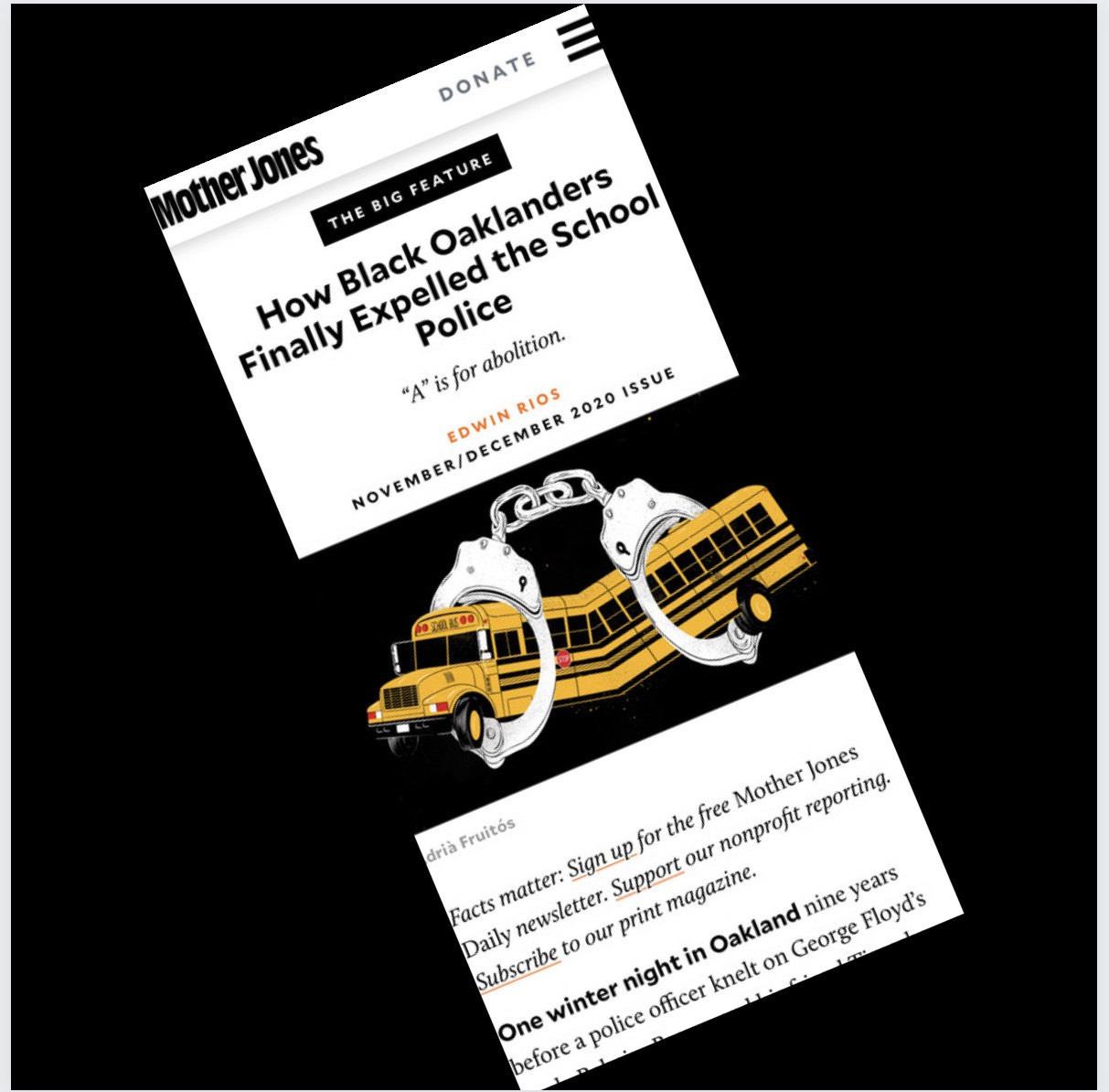FREEDOM FORUM

Mother Jones Article on History of Policing in Oakland
- , GFR
“The Black Organizing Project envisioned a police-free school district emphasizing “peace-keeping, culture-keeping, and restorative justice” practices. They hoped “peacekeepers” would operate under the district’s umbrella and focus on deescalation. The district would direct money cut from the police toward counselors and restorative justice practitioners. The resolution left open the prospect of calling Oakland’s police force in cases of emergency at a school. Byers wanted to change the paradigm of bringing in the cops to address minor problems, which she sees as the equivalent of “calling the fire department for burnt toast.”
‘Two months later, when school board members reconvened to discuss the resolution, the district had yet to devise a plan for a police-free future, but Superintendent Kyla Johnson-Trammell hoped that a plan would be finalized in December. “The relationship with the community and district is one of mistrust,” Jessica Black, BOP’s organizing director, told the board. That mistrust is a product of the historically fraught relationship with police, constant budget cuts, school closures, and a recent teachers strike. “Oakland can be a model for police-free schools for our entire country,” she said, “and because of historic mistrust, show a new model for how school districts can work collaboratively with the community.
That’s the whole story of the city, in Murch’s eyes. When she wrote Living for the City, Murch was living in Oakland. She saw the book as a love letter to the city, to the way it had created a universal grammar for resisting the police and other forms of racist social control. She remembers giving a talk in Ireland once, and they called the cops “pigs” there, too, a touch of radical Oakland echoing back to her. And now, perhaps, the city would be a model once more. “Oakland’s most important legacy is not the police,” she said. “It’s the fight against the police.”
*Please read more to learn about the 10 year organizing campaign and the history of how policing came to be in this article from Mother Jones –

